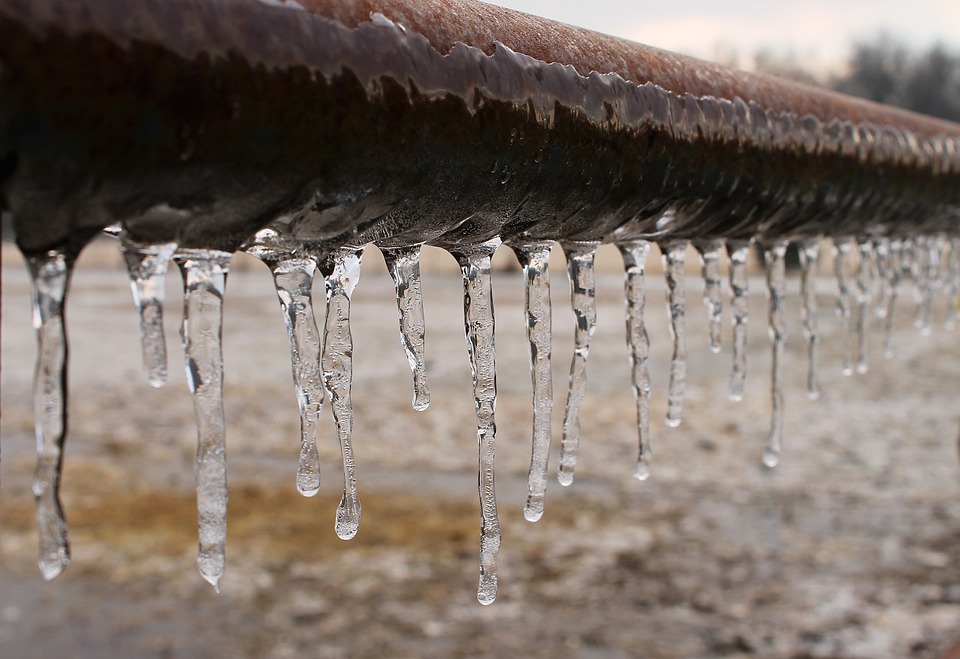Essential Tips for Avoiding Frozen Plumbing in Cold Weather Conditions
Essential Tips for Avoiding Frozen Plumbing in Cold Weather Conditions
Blog Article
Do you find yourself trying to locate answers concerning Helpful Tips to Prevent Frozen Pipes this Winter?
:strip_icc()/snow-outdoor-faucet-pipes-4af65d1e5e904fb1aa7bf74071fe5d89.jpg)
Cold weather can wreak havoc on your plumbing, particularly by freezing pipelines. Right here's just how to avoid it from happening and what to do if it does.
Intro
As temperature levels drop, the threat of icy pipes boosts, potentially leading to expensive repair work and water damages. Understanding just how to avoid icy pipelines is critical for property owners in cool climates.
Avoidance Tips
Insulating prone pipes
Cover pipelines in insulation sleeves or use warm tape to protect them from freezing temperatures. Focus on pipelines in unheated or exterior locations of the home.
Home heating techniques
Keep indoor rooms adequately heated up, specifically locations with plumbing. Open up closet doors to allow warm air to distribute around pipelines under sinks.
How to recognize frozen pipes
Look for decreased water flow from faucets, uncommon smells or sounds from pipelines, and noticeable frost on subjected pipelines.
Long-Term Solutions
Architectural adjustments
Consider rerouting pipes far from exterior wall surfaces or unheated areas. Add additional insulation to attics, cellars, and crawl spaces.
Updating insulation
Invest in premium insulation for pipes, attics, and walls. Correct insulation aids preserve regular temperature levels and minimizes the danger of frozen pipelines.
Safeguarding Outdoor Plumbing
Yard hose pipes and outdoor taps
Disconnect and drain pipes garden hose pipes before winter months. Mount frost-proof faucets or cover exterior taps with shielded caps.
Understanding Frozen Pipelines
What causes pipes to freeze?
Pipelines ice up when exposed to temperatures below 32 ° F (0 ° C) for prolonged periods. As water inside the pipelines ices up, it increases, putting pressure on the pipeline walls and possibly creating them to break.
Risks and problems
Icy pipelines can result in water interruptions, property damages, and pricey repair services. Ruptured pipes can flooding homes and cause considerable architectural damages.
Indicators of Frozen Piping
Identifying icy pipes early can prevent them from bursting.
What to Do If Your Pipes Freeze
Immediate activities to take
If you suspect frozen pipes, keep faucets available to eliminate stress as the ice melts. Make use of a hairdryer or towels taken in hot water to thaw pipelines slowly.
Conclusion
Preventing frozen pipes requires proactive procedures and quick actions. By recognizing the reasons, signs, and safety nets, home owners can protect their pipes during cold weather.
Helpful Tips to Prevent Frozen Pipes this Winter
UNDERSTANDING THE BASICS: WHY PIPES FREEZE AND WHY IT’S A PROBLEM
Water freezing inside pipes is common during the winter months, but understanding why pipes freeze, and the potential problems it can cause is crucial in preventing such incidents. This section will delve into the basics of why pipes freeze and the associated problems that may arise.
THE SCIENCE BEHIND FROZEN PIPES
When water reaches freezing temperatures, it undergoes a physical transformation and solidifies into ice. This expansion of water as it freezes is the primary reason pipes can burst. As the water inside the pipe freezes, it expands, creating immense pressure on the walls. If the pressure becomes too great, the pipe can crack or rupture, leading to leaks and water damage.
FACTORS THAT CONTRIBUTE TO PIPE FREEZING
Low Temperatures: Extremely cold weather, especially below freezing, increases the risk of pipes freezing. Uninsulated or Poorly Insulated Pipes: Pipes located in unheated areas, such as basements, crawl spaces, or attics, are more prone to freezing. Insufficient insulation or lack of insulation altogether exacerbates the problem. Exterior Wall Exposure: Pipes running along exterior walls are susceptible to freezing as they encounter colder temperatures outside. Lack of Heating or Temperature Regulation: Inadequate heating or inconsistent temperature control in your home can contribute to frozen pipes. PROBLEMS CAUSED BY FROZEN PIPES
- Pipe Bursting: As mentioned earlier, the expansion of water as it freezes can cause pipes to burst, resulting in significant water damage.
- Water Damage: When pipes burst, it can lead to flooding and water damage to your property, including walls, ceilings, flooring, and personal belongings.
- Structural Damage: Prolonged exposure to water from burst pipes can compromise the structural integrity of your home, leading to costly repairs.
- Mold and Mildew Growth: Excess moisture from water damage can create a favorable environment for mold and mildew growth, posing health risks to occupants.
- Disrupted Water Supply: Frozen pipes can also result in a complete or partial loss of water supply until the issue is resolved.
WHY CERTAIN PIPES ARE MORE PRONE TO FREEZING
- Location: Pipes located in unheated or poorly insulated areas, such as basements, crawl spaces, attics, or exterior walls, are at higher risk of freezing.
- Exterior Pipes: Outdoor pipes, such as those used for irrigation or exposed plumbing, are particularly vulnerable to freezing as they are directly exposed to the elements.
- Supply Lines: Pipes that carry water from the main water supply into your home, including the main water line, are critical to protect as freezing in these lines can affect your entire plumbing system.
- Underground Pipes: Pipes buried underground, such as those connected to sprinkler systems or outdoor faucets, can be susceptible to freezing if not properly insulated.
https://busybusy.com/blog/helpful-tips-to-prevent-frozen-pipes-this-winter/

I was brought to that report on Prevent Frozen Pipes from a buddy on another domain. Sharing is nice. One never knows, you might be helping someone out. I take joy in your readership.
Apply Now Report this page